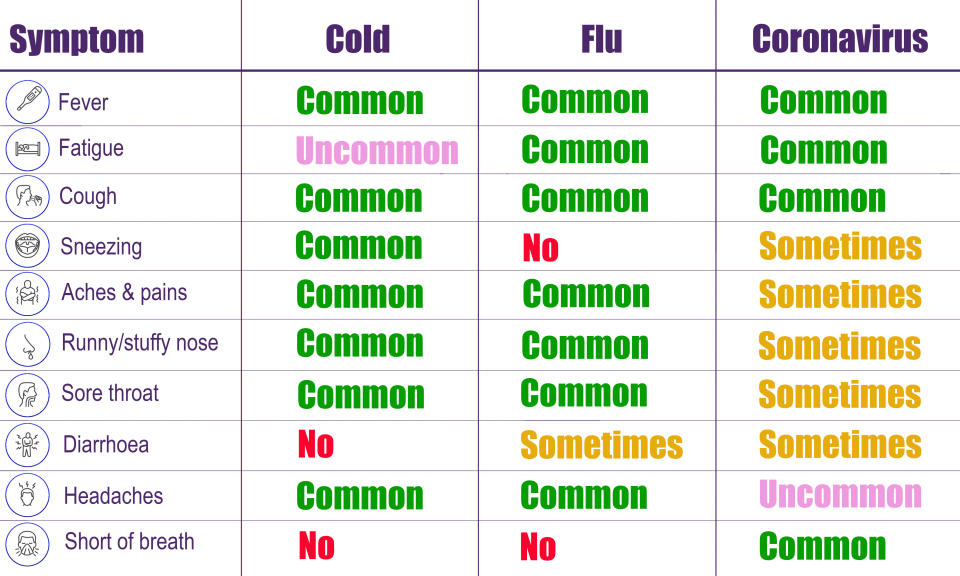Boris Johnson tests positive for coronavirus - will he have to isolate from pregnant fiancée Carrie Symonds?

Boris Johnson has tested positive for the coronavirus.
Following his own enforcements, the prime minister must now isolate at 10 Downing Street for seven days.
His pregnant fiancée Carrie Symonds, said to be due in mid-2020, was reportedly working in her PR job from their shared home.
A Downing Street spokesperson suggested the couple are not living together at present.
Johnson has enforced draconian measures that require all Britons to stay indoors as much as possible, stressing this is “particularly important for pregnant women”, who may be at greater risk of complications from this previously-unknown strain.
If just one member of a household tests positive for the virus – or develops its tell-tale fever or cough – they must stay indoors entirely for seven days, while their live-in relatives must do so for two weeks.

Asked whether Symonds is living in the flat above 11 Downing Street with Johnson, his official spokesman said: “The prime minister of course follows all of the guidelines which have been issued by Public Health England in full.
“His circumstance is such that he will be required to self-isolate for seven days.”
Latest coronavirus news, updates and advice
Live: Follow all the latest updates from the UK and around the world
Fact-checker: The number of COVID-19 cases in your local area
Explained: Symptoms, latest advice and how it compares to the flu
Dr Michael Head from the University of Southampton said: “It is public knowledge the prime minister’s partner is pregnant, and so a confirmed [coronavirus] infection does give some concern around the health of mother and baby.
“It is reassuring that so far there have been few noted complications during pregnancy of infection with [the coronavirus].
“However, this is an emerging evidence base, so the health services will be cautious with the welfare of all expectant mothers and any associated risks.”
Professor Ravi Gupta from the University of Cambridge added: “Data to date suggest no adverse outcomes where infection occurs in third trimester, as would be likely in the case of [the] PM’s partner.
“There have been occasional cases of babies being infected just after birth but it is unclear if the infection arose in utero or after birth”.
Coronavirus: how to live with a ‘patient’
For now, guidelines do not vary if one member of a “quarantined” household is pregnant.
Officials have urged suspected or confirmed patients to sleep in their own room and bed, if possible.
People who live in a home with multiple bathrooms should set one aside to be used just by the coronavirus sufferer.
Ten Downing Street is said to have more than 100 rooms. It is unclear how many of these are bed or bathrooms.
Officials have also urged patients not to share dishes, drinking glasses, cutlery, towels or bedding with other members of their household.
Suspected or confirmed patients have also been told to stay away from pets and other animals.
Johnson and Symonds share a Jack Russell cross called Dilyn.
Dogs are not thought to be carriers of the coronavirus, however, there is still relatively little scientists know about the strain.

Coronavirus: can pregnant women pass the infection to their unborn child?
While no one can rule it out, it is thought to be highly unlikely the coronavirus spreads “intrauterine”.
Scientists from Fudan University in Shanghai looked at 33 pregnant women who were confirmed to be carrying the virus.
Three of the women gave birth to babies who “presented with early onset infection” around two days later.
“Given that all the infected babies were first shown to be positive at two days, I suspect they were infected after being brought into the world rather than in the womb”, said Professor Paul Hunter from the University of East Anglia.
“This does not change the current consensus that transmission in the womb is unlikely”.
Tests of the women’s amniotic fluid, umbilical-cord blood and breast milk all came back clear.
“It seems more likely the three infants were infected very soon after delivery, possibly from the mother’s fingers”, said Professor Andrew Whitelaw from the University of Bristol.
The circulating coronavirus is one of seven strains of a class of viruses that are known to infect humans.
Others include the common cold and severe acute respiratory syndrome (Sars), which killed 774 people during its 2002/3 outbreak.
“Transmission from mother to baby of coronavirus has not previously been observed,” said Professor Andrew Shennan from King’s College London.
“Studies have shown coronavirus has not passed to amniotic fluid, foetal cord blood, placentas or the genital tract of infected mothers.”
Scientists from Zhongnan Hospital in Wuhan, China, found six babies born to women with the coronavirus did not catch the infection, but did have immune-fighting proteins against it in their bloodstream.
One expert stressed, however, there is no evidence these proteins went on to prevent the coronavirus infecting the newborns.

Coronavirus: what is the advice for pregnant women?
Pregnant women have been urged to be particularly careful not to catch the coronavirus, however, this may be a case of being on the safe side.
“Infections and pregnancy are not a good combination in general and that is why we have taken the very precautionary measure while we try and find out more,” said Professor Chris Whitty, the UK’s chief medical adviser.
Nevertheless, pregnant women did not make up the 1.5 million vulnerable Britons who have been told to stay in their home for three months. These include severe asthmatics and blood-cancer patients.
According to the Royal College of Obstetricians and Gynaecologists (RCOG) “pregnant women do not appear to be more likely to be severely unwell than other healthy adults if they develop the coronavirus”.
Virtually unheard of just three months ago, experts are learning more about the virus every day.
“What we do know is that pregnancy in a small proportion of women can alter how your body handles severe viral infections,” according to the RCOG.
“What has driven the decisions made by officials to place pregnant women in the vulnerable category is caution.”
The Royal College of Midwives has urged expectant mothers to attend scheduled hospital appointments, calling them “essential to ensure the wellbeing of pregnant women and their babies”.
For those showing symptoms and in isolation, the RCOG recommends letting your midwife or antenatal clinic know in advance so they can make arrangements.
Some women not showing symptoms report being asked to attend these appointments alone.
What is the coronavirus?
The coronavirus is thought to have emerged at a seafood and live animal market in the Chinese city Wuhan, capital of Hubei province, at the end of last year.
Since the outbreak was identified, over 549,600 cases have been confirmed across more than 170 countries on every inhabited continent, according to John Hopkins University.
More than 127,500 patients are reported to have “recovered”.
Cases have been plateauing in China since the end of February, with the US and Europe now considered the worst-hit areas.
The UK has had more than 11,800 confirmed cases and 578 deaths.
Globally, the death toll has exceeded 24,800.
The coronavirus mainly spreads face-to-face via infected droplets coughed or sneezed out by a patient.
There is also evidence it can be transmitted in faeces and urine and survive on surfaces.
Symptoms tend to be flu-like, including fever, cough and slight breathlessness.
Early research suggests four out of five cases are mild.
Pneumonia can come about if the infection spreads to the air sacs in the lungs, causing them to become inflamed and filled with fluid or pus.
The lungs then struggle to draw in air, resulting in reduced oxygen in the bloodstream and a build-up of carbon dioxide.
The coronavirus has no “set” treatment, with most patients naturally fighting off the infection.
Those requiring hospitalisation are offered “supportive care”, like ventilation, while their immune system gets to work.
Officials urge people ward off the infection by washing their hands regularly and maintaining social distancing.



